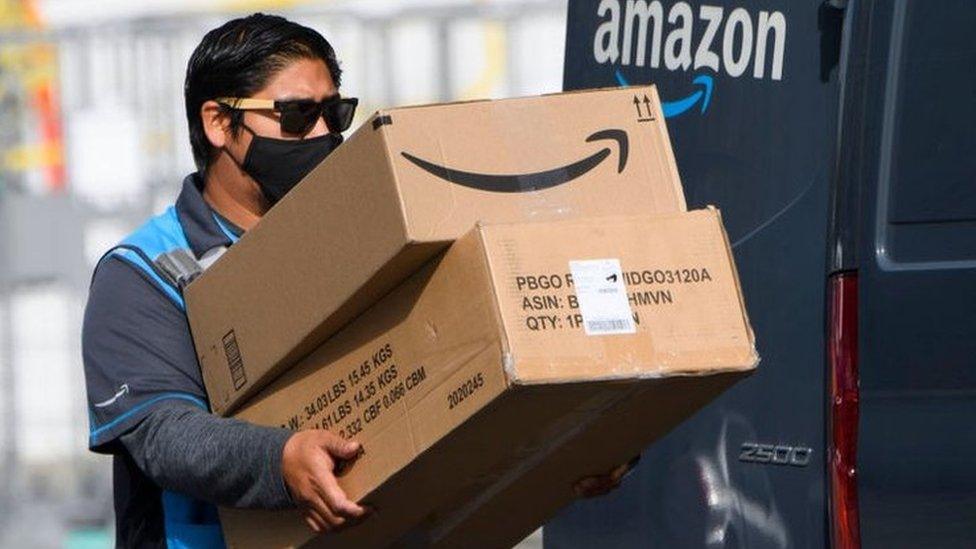Parcel firms told to improve how they handle complaints
- Published

Parcel firms will be expected to improve how they handle complaints under new proposals aimed at improving customer service.
Regulator Ofcom said nearly two-thirds of customers it surveyed in January had suffered problems with deliveries.
When things go wrong, such as parcels being lost, customers often have problems resolving complaints, it said.
Deliveries have grown significantly in the pandemic driven by rapid growth in online shopping.
Ofcom said parcel deliveries were "increasingly important" to people's daily lives.
"We're planning to strengthen our rules to make sure people are treated fairly by delivery firms," said Lindsey Fussell, Ofcom's networks and communications group director.
"If we don't see significant improvements in customer service, we'll consider enforcement action or tighten regulations further."
Under the new proposals, customers must be:
told who to contact, and what channels they can use to make a complaint;
told what the complaint process will be, and how long it will take to resolve;
dealt with by staff who have received appropriate training.
Disabled customers, who are more likely to get problem deliveries, need to be treated more fairly, the watchdog said.
Common problems disabled people experience include "couriers not allowing enough time at the door, parcels being left in inaccessible places, and operators not acting on specific delivery instructions provided to them".
Under the proposals, firms will have to follow clear procedures to treat disabled customers fairly, including making sure customers can set out their needs and that couriers can follow those instructions.


While the vast majority of the 10 million parcels scheduled for delivery every day arrive without incident, getting help when things go wrong can be frustrating.
Even when the contact details of the delivery firms are accessible, resolving problems may take longer than the initial delivery timeframe.
Ofcom's proposal to encourage better complaint handling comes as part of its five-year review of postal regulation - which it says "must keep pace with changes in the market and remain relevant".
But some are concerned that the regulator is already behind with delivery.
Even before the pandemic accelerated the trend, an increasing amount of shopping was happening online.
It wasn't until this March that Ofcom called for views on the subject of parcel delivery.
Having reflected on those, it has proposed these extra guidelines.
But it will now consult on those until next March - with a view to introducing them in summer.
Even then, they'll only be guidelines, with the regulator touting the possibility of future enforcement action or regulation if it doesn't see an improvement in customer service and complaints handling.
In the meantime, customers may be left hanging by the letterbox, with a reminder that they can legally seek redress from retailers if deliveries fail to appear.

Ofcom said that people were most satisfied with deliveries from Amazon, which had an 89% approval rating.
Royal Mail had an 80% rating, while Hermes scored least on satisfaction with deliveries, at 57%.
Online shopping has boomed during the coronavirus pandemic, Ofcom said in a separate report on postal services, external.
Parcel volumes grew nearly 50% in 2020-21 compared with the previous year, with 4.2 billion items delivered "mainly driven by an increase in online shopping as a result of the Covid-19 pandemic", it said.
While Royal Mail's quality of service fell due to "the introduction of social distancing, high levels of staff absence and a significant unforeseen increase in parcel volumes", its revenue and profits increased.
Related topics
- Published7 December 2021

- Published24 November 2021
